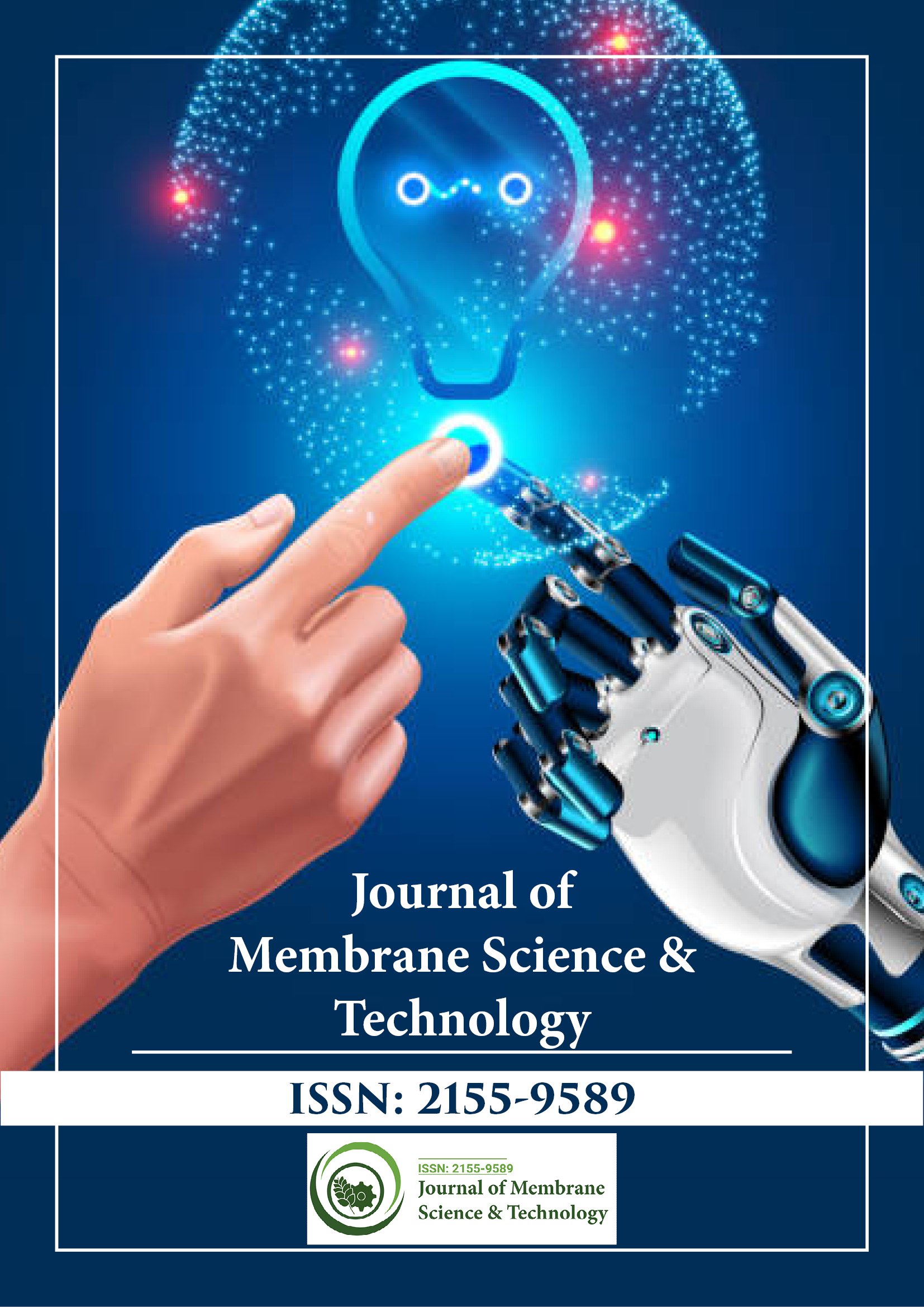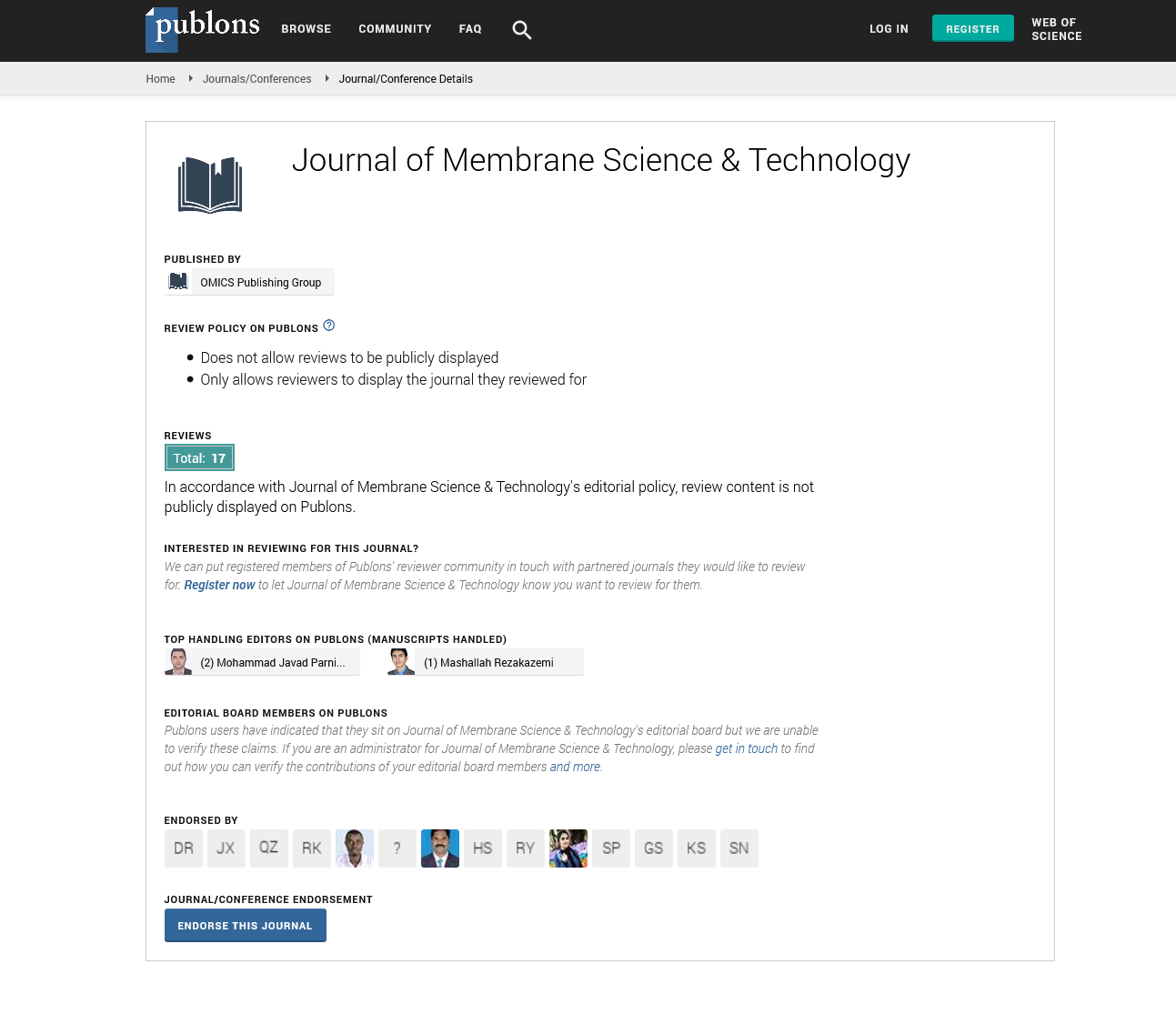Indexed In
- Open J Gate
- Genamics JournalSeek
- Ulrich's Periodicals Directory
- RefSeek
- Directory of Research Journal Indexing (DRJI)
- Hamdard University
- EBSCO A-Z
- OCLC- WorldCat
- Proquest Summons
- Scholarsteer
- Publons
- Geneva Foundation for Medical Education and Research
- Euro Pub
- Google Scholar
Useful Links
Share This Page
Journal Flyer

Open Access Journals
- Agri and Aquaculture
- Biochemistry
- Bioinformatics & Systems Biology
- Business & Management
- Chemistry
- Clinical Sciences
- Engineering
- Food & Nutrition
- General Science
- Genetics & Molecular Biology
- Immunology & Microbiology
- Medical Sciences
- Neuroscience & Psychology
- Nursing & Health Care
- Pharmaceutical Sciences
Abstract
Hybrid Membranes Prepared by the Sol-Gel Process and based on Silica- Polyvinyl Acetate for Methane Enrichment from Biogas
Quechulpa-Pérez P, Pérez-Robles JF, Pérez-de Brito AF and Avilés-Arellano LM
The use of alternative energies to substitute or for using in a less degree the fossil fuels is one of the most important goals of our modern society. Currently research focuses on the production and use of bio-fuels, such as Biogas. However the produced biogas (composed mainly of methane, CH4) has different undesirable gases such as nitrogen, N2; carbon dioxide, CO2 and sulfur compounds, then it is very important to reduce these gases and to increase the concentration of methane gas. Regarding to that our research group is working in some type of hybrid membranes to increase the quality of methane gas in biogas and decrease the concentration of other gases. The gas separation was accomplished using hybrid membranes prepared by the sol-gel process, based on silica (SiO2) and polyvinyl acetate, PVAc. The material for the membranes was prepared using different concentrations of SiO2 (%w/w), and four different solvents (methanol, ethanol, propanol, butanol in different molar ratios) to make compatible the water, necessary for the process, and the tetraethylorthosilicate, TEOS; that is, the precursor of silica. We found that membranes porosity changed depending on the solvent used for the hybrid material preparation. The best membranes were obtained using methanol as solvent. On the other hand, when other solvents were used, the obtained membranes were of bad quality, showing abundant microcracks, visible to the eye, and for this reason they were rejected. For the gas separation tests, pure gases at low pressures similar to that found in bio-digesters conditions were used to test the hybrid membranes. Results showed that diffusion gases order is: H2, CH4, N2 and CO2. That was corroborated using a mixture of gases, as it is shown.

